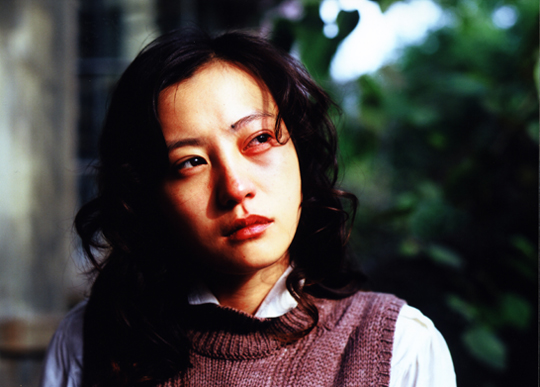|
Reviews of Recent Independent, Foreign, & Documentary Films in Theaters and DVD/Home Video
Directed by Lou Ye Produced by Sylvain Bursztein, Li Fang, Lou & An Nai Written by Lou, Feng Mei & Ma Yingli Director of photography, Qing Hua Edited by Lou & Jian Zeng Music by Peyman Yazdanian Released by Palm Pictures Language: Mandarin & German with English subtitles China/France. 140 min. Not Rated With Xiaodong Guo, Lei Hao, Xueyun Bai, Lin Cui, Long Duan & Ling Hu. American viewers will have different reactions to this drama than China’s Film Bureau, which banned both the film and director Lou Ye from filmmaking for five years (ostensibly because Lou submitted it to the 2006 Cannes Film Festival without state approval). The sex scenes, graphic for Chinese cinema, are no more voyeuristic or explicit than a lot of international fare. Purportedly, it is the first mainland film to show, briefly, both male and female full-frontal nudity. Let freedom ring! (In order to be released in China, the far more explicit Lust, Caution’s sex scenes were cut out; but without the bedroom romps, the motivations in Summer Palace wouldn’t make much sense.) The references to the June 1989 Tiananmen Square protests, also a first for a mainland film, more than likely inflamed authorities, even with its politics cautiously implied. The demonstrations serve as a backdrop with no body count – a student calls the authorities “f------ bastards” in the film’s most overtly subversive moment. But the censors must have realized that the audience would know that the students had to be protesting something. It’s not for nothing that three main characters leave China shortly afterwards for Berlin after the fall of the Wall. The film mainly focuses on the obsessive, sex-driven first love between pouty 18-year-old Yu Hong from the provinces and Zhou Wei (Xiaodong Guo), big man on campus, who has studied abroad in East Germany. In the first half, Lou exuberantly depicts hormonal dormitory life at Beijing University, with bouncy Western pop playing in the background, like “Can’t Take My Eyes Off You” and “Mickey” (just try to get that tune out of your head). In Yu Hong’s dorm room, privacy has no meaning. Whether a roommate beds a guy or Yu Hong uses the chamber pot, there is always an audience. When an empty dorm room becomes available, Yu Hong and Zhou Wei, a match made by Yu Hong’s closest friend, make the most of the opportunity. The film spans from their days together in the late ’80s to 2001, long after the couple has acrimoniously split up, with Yu Hong settling in the economically booming south, and Zhou Wei in Berlin.
But the onscreen vagueness of their bumpy relationship does not necessarily match Yu Hong’s intense diary recitations. Though Lou hits the right tone
in Yu Hong’s naïve and self-involved voice-over, the audience needs to be told of her feelings. It doesn’t help that actress Lei Hao has more
chemistry with a hometown boy featured in the prologue. In the dour second hour, Lei plays Yu Hong to the point of resignation,
keeping her feelings from Zhou Wei as well as from the audience as if she’s still the student playing hard to get. Even with a hand-held camera
filming just inches from her face, she remains a blank slate.
Kent Turner
|

